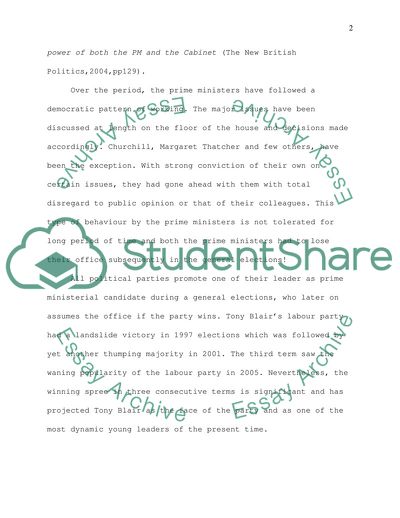Cite this document
(Do We Have a Cabinet or Prime Ministerial Government in Britain Today Essay, n.d.)
Do We Have a Cabinet or Prime Ministerial Government in Britain Today Essay. https://studentshare.org/politics/1707263-on-the-eveidence-of-tony-blairs-prime-ministership-since-1997-do-we-have-cabinest-or-prime-ministerial-government-in-britain-today
Do We Have a Cabinet or Prime Ministerial Government in Britain Today Essay. https://studentshare.org/politics/1707263-on-the-eveidence-of-tony-blairs-prime-ministership-since-1997-do-we-have-cabinest-or-prime-ministerial-government-in-britain-today
(Do We Have a Cabinet or Prime Ministerial Government in Britain Today Essay)
Do We Have a Cabinet or Prime Ministerial Government in Britain Today Essay. https://studentshare.org/politics/1707263-on-the-eveidence-of-tony-blairs-prime-ministership-since-1997-do-we-have-cabinest-or-prime-ministerial-government-in-britain-today.
Do We Have a Cabinet or Prime Ministerial Government in Britain Today Essay. https://studentshare.org/politics/1707263-on-the-eveidence-of-tony-blairs-prime-ministership-since-1997-do-we-have-cabinest-or-prime-ministerial-government-in-britain-today.
“Do We Have a Cabinet or Prime Ministerial Government in Britain Today Essay”. https://studentshare.org/politics/1707263-on-the-eveidence-of-tony-blairs-prime-ministership-since-1997-do-we-have-cabinest-or-prime-ministerial-government-in-britain-today.


